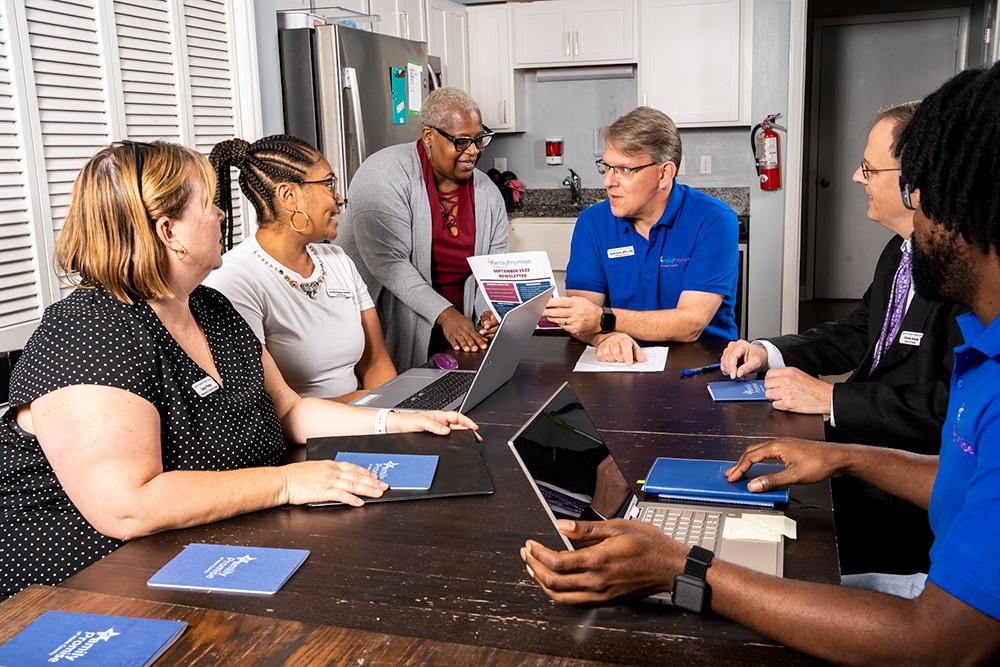Board member Crystal Bodie Smith doesn’t share the story of how Family Promise of Wake County (FPWC) changed her life — she shares her testimony.
A professional woman with a fully sustainable income, housing, 401(k), businesses, and a nonprofit, Smith hopes her experience will “encourage someone out here who is allowing their pride to hold them back from their blessing.”
“After grieving the loss of both parents, divorcing twice, losing a job, declaring bankruptcy, and going through a rough patch with the relationship with my children, I had to choose my peace,” said Smith. “This was best for my youngest daughter and I. So I secretly enrolled in this program, feeling embarrassed and yet free at the same time. I let the program help me get my life back on track.”
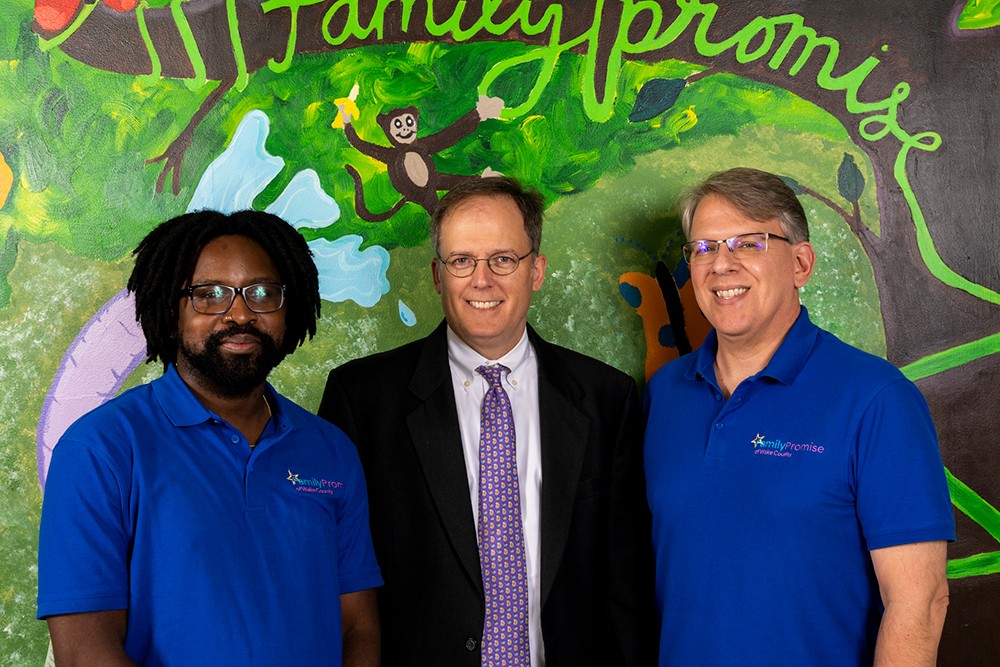
From left: RaShawn Stanley, program director, stands with Charles George, board chair, and Scott Ferris, executive director.
The program, Family Promise of Wake County, originally known as Wake Interfaith Hospitality Network (WIHN), is a nonprofit providing emergency shelter and stability to Wake County families experiencing temporary homelessness. Since their start in 1994, FPWC has expanded their services to include lifeskills training, case management services provided by social workers, a day center, and transitional housing.
“In most shelters, whether it’s for domestic violence or homelessness, mom and children can go to one and dad has to go to another one,” said Executive Director Scott Ferris. “And here’s a program that keeps a family together when they’re going through a crisis. We wrap our hearts around the family through our network of amazing volunteers and community partners.”
FPWC’s programs include emergency shelter services, transitional housing, prevention services, and an aftercare program. FPWC’s Day Center provides a space where families can receive case management services, pursue employment, shower, and do laundry. Guests are provided with lockers, a mailing address, daily toiletries, a nursery and playroom, a living room area, and a kitchen table where they can enjoy three meals a day provided by host congregations.
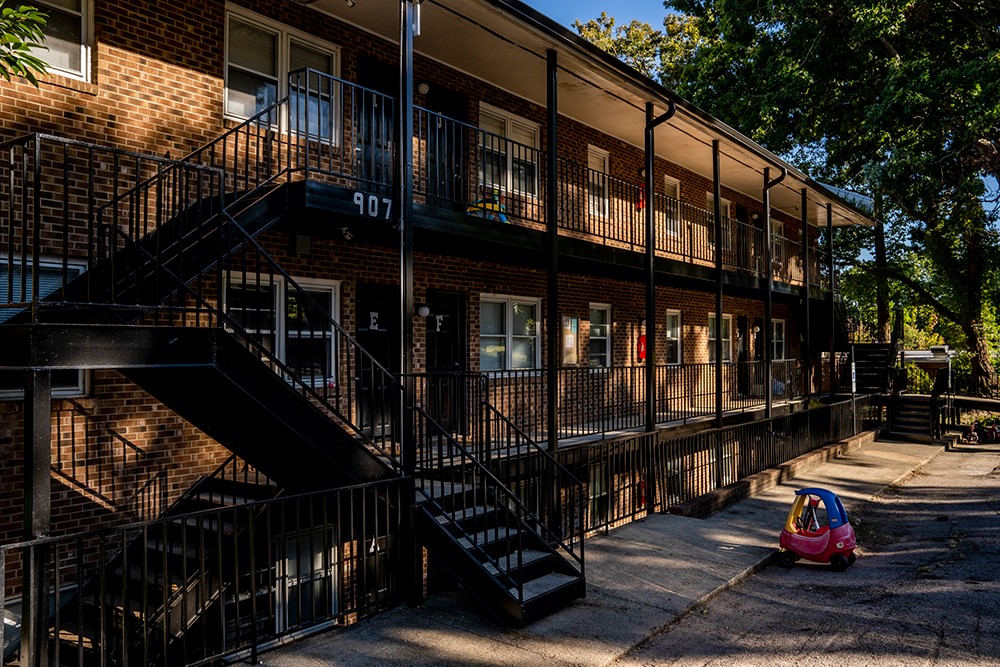
The Transitional Housing Program provides 12 units of housing for families for a period up to one year.
“Family Promise was founded on the rotational emergency shelter model, the core of the program for nearly 30 years,” said Ferris. “That has changed with the pandemic, and we’re now providing a static shelter on our campus for our families. Prior to the pandemic, families were staying overnight at churches for a week and the families would come here during the day. Since we shifted to the static shelter, churches are still hosting families, but they’re bringing dinners and groceries to them here, on site. If a group wants to do a Wednesday evening picnic outside for the families, or an arts and crafts or fall festival, they can do that here on our campus.”
FPWC mobilizes more than 3,200 volunteers from over 50 host and support congregations, the hallmark of the organization’s success. Charles George stepped into his role as the board chair of FPWC after serving alongside his own congregation and seeing firsthand the impact that hosting had on families.
“My first connection was through my church, when we were using the church as an emergency shelter,” said George. “One year we decided to get involved, and my kids were old enough to see that they’re very fortunate, so it was a good experience for them as well. We did it a couple of times where we were either the overnight host at the church or we brought meals and played games during the evening. One of the board members had approached me after one of these sessions and asked me if I’d be interested in joining the board, because I’d seen what the organization was doing firsthand and had enjoyed just being a volunteer. I decided I would take him up on that offer, and I’m glad I did.”
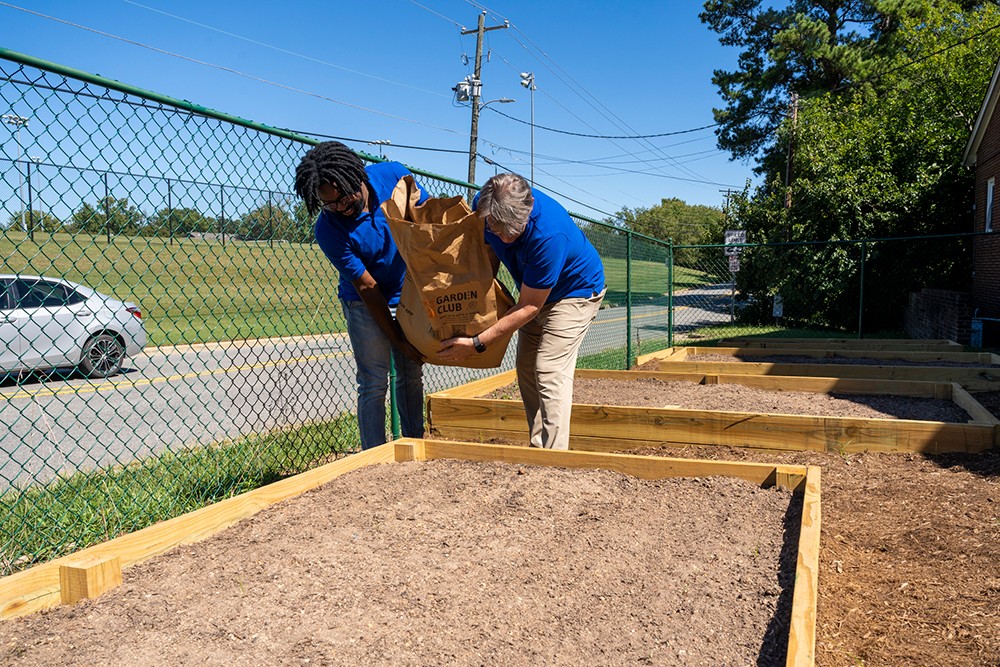
FPWC is always looking for volunteers to help with grass and garden maintenance.
FPWC’s static emergency shelter, an eight-week program with a possible four-week extension, uses four of the 12 units available in an apartment building right next to the Day Center. The remaining units are used for transitional housing, an 8- to 12-month program consisting of four service components: intensive case management, life skills education and skill attainment, staff-facilitated support groups, and information and referral services. FPWC also partners with the Triangle Apartment Association for the New Lease on Life program, assisting families by providing high-quality housing at a reduced and affordable rate for a period of one to two years.
“In Wake County, the vacancy rate is less than 3%,” said Ferris. “So if you become homeless, it’s really difficult to find new housing. We want to work with families who are at risk of losing their housing through landlord engagement and building those relationships. We’ve also established another prevention program — a post stabilization program that’s specifically for families that have been in our shelter that are now at risk of losing housing. This program offers case management as well as financial assistance, and it could be a family that was in a shelter a month ago or 10 years ago. It allows us to continue that relationship and provide ongoing support.”
For those who are looking to volunteer, FPWC has infinite possibilities! Churches, groups, or individuals can host events for families on site, teach life skills classes, volunteer to provide childcare or food during the evening classes, or participate in one-day projects, such as refreshing apartments when people move out or providing lawn/garden maintenance. When it comes to volunteers, anyone can lend a helping hand.
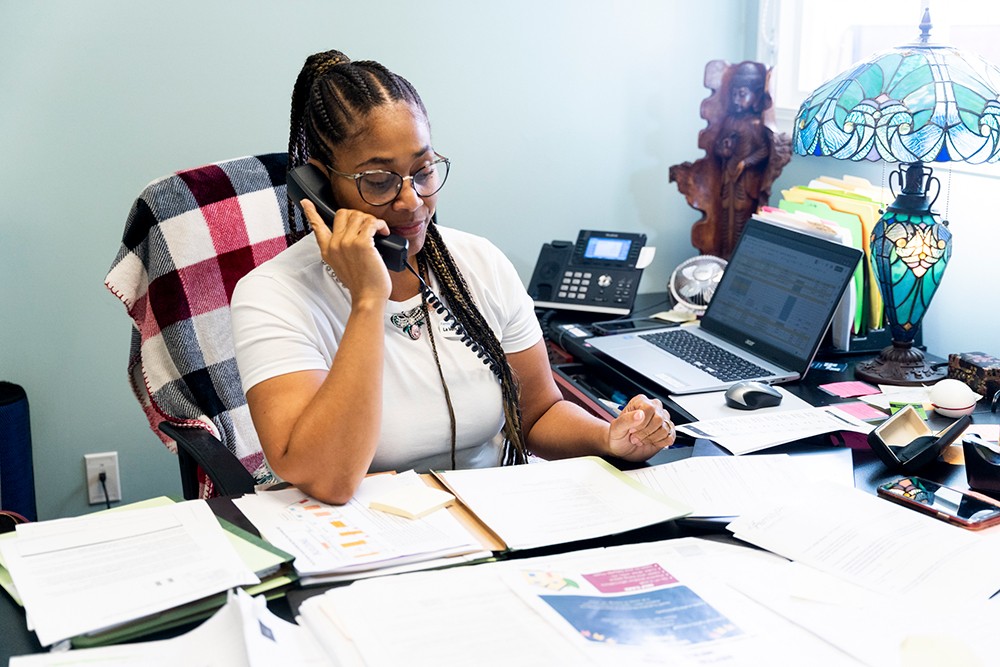
The Transitional Housing Program provides 12 units of housing for families for a period up to one year.
“It’s cross-congregational. There’s Catholics, Methodists, Presbyterians — it’s nondenominational across the board. We will work with mosques, temples, and really anyone who wants to help,” said Carey Phelps, development and volunteer manager. “I think one of the things that inspires me the most is the fact that Family Promise is truly a family. Not only are we serving families, but the folks who are volunteering are coming as families to volunteer. We are not an organization that is just corporations that are coming in for a day and then leaving. We have generations of families who have volunteered with Family Promise, and they come with grandparents and teenagers and infants. That’s the thing that impresses me the most — the fact that we really live the mission as a holistic family organization.”
For Smith, FPWC’s mission was a lifesaver, and she hopes her testimony will encourage others to step out in faith and ask for help.
“I am still reaping the benefits of this accomplished journey through this program,” said Smith. “I know now that I was set back in order to be set up for my come up. Had I not surrendered and taken advantage of the blessing that was disguised as Wake Interfaith Hospitality Network, now known as Family Promise, I would not have learned the valuable lessons that I needed to learn, nor would my teenage daughter. She tells me now how much it helped her to appreciate and value things.”
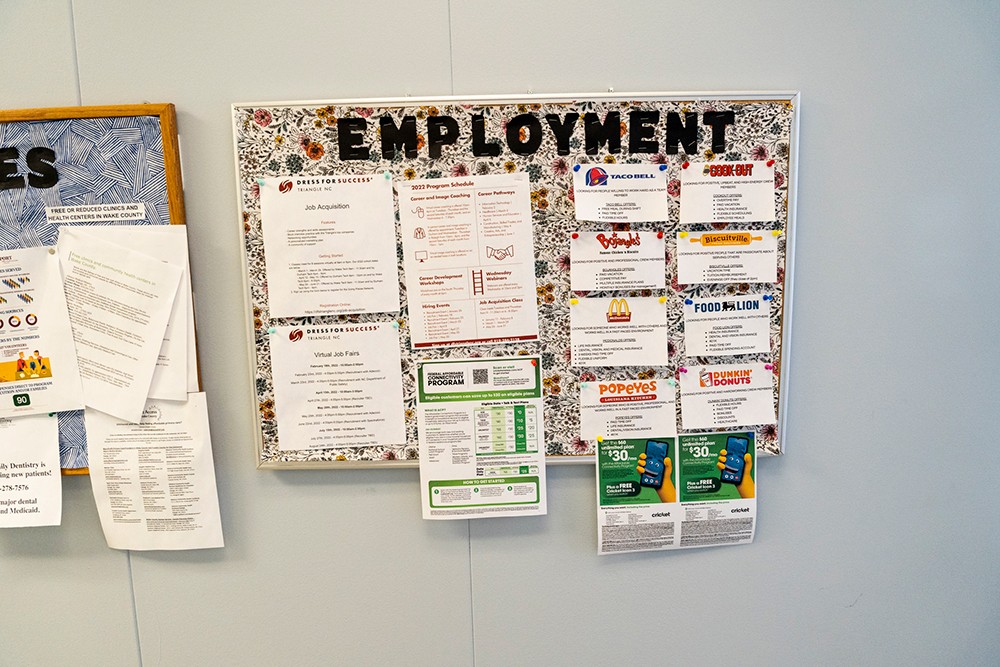
At the Day Center, families are given the opportunity to search for jobs, receive help with their resume, and attend life skills classes.
“I pray this helps someone. If this is you, please, go get your blessing! Prepare for your comeback. Know that everything you lost will be returned to you and more. You will never understand until you step out on your faith and connect with Family Promise. Stay focused and have tunnel vision and you will succeed!”
To learn more about or volunteer with Family Promise of Wake County, visit familypromisewakenc.org.
- Hosting the Holidays
- The 2022 Gift Guide
- Celebrating Kwanzaa
- In Honor of Hanukkah
- Small Bites, Big Taste
- A Lesson in Thankfulness
- Things to Do: November / December 2022
- Erica Chats: Who Loves a Good Holiday Tradition?
- Small Business Spotlight: Stylish Living
- Nonprofit Spotlight: Family Promise of Wake County
- On Trend: Beer Advent Calendars
- Liquid Assets: Holiday Bash by Raleigh Brewing
- Liquid Assets: Santa’s Smashed
- Garden Adventurer: Color Your Indoor World with Calathea




